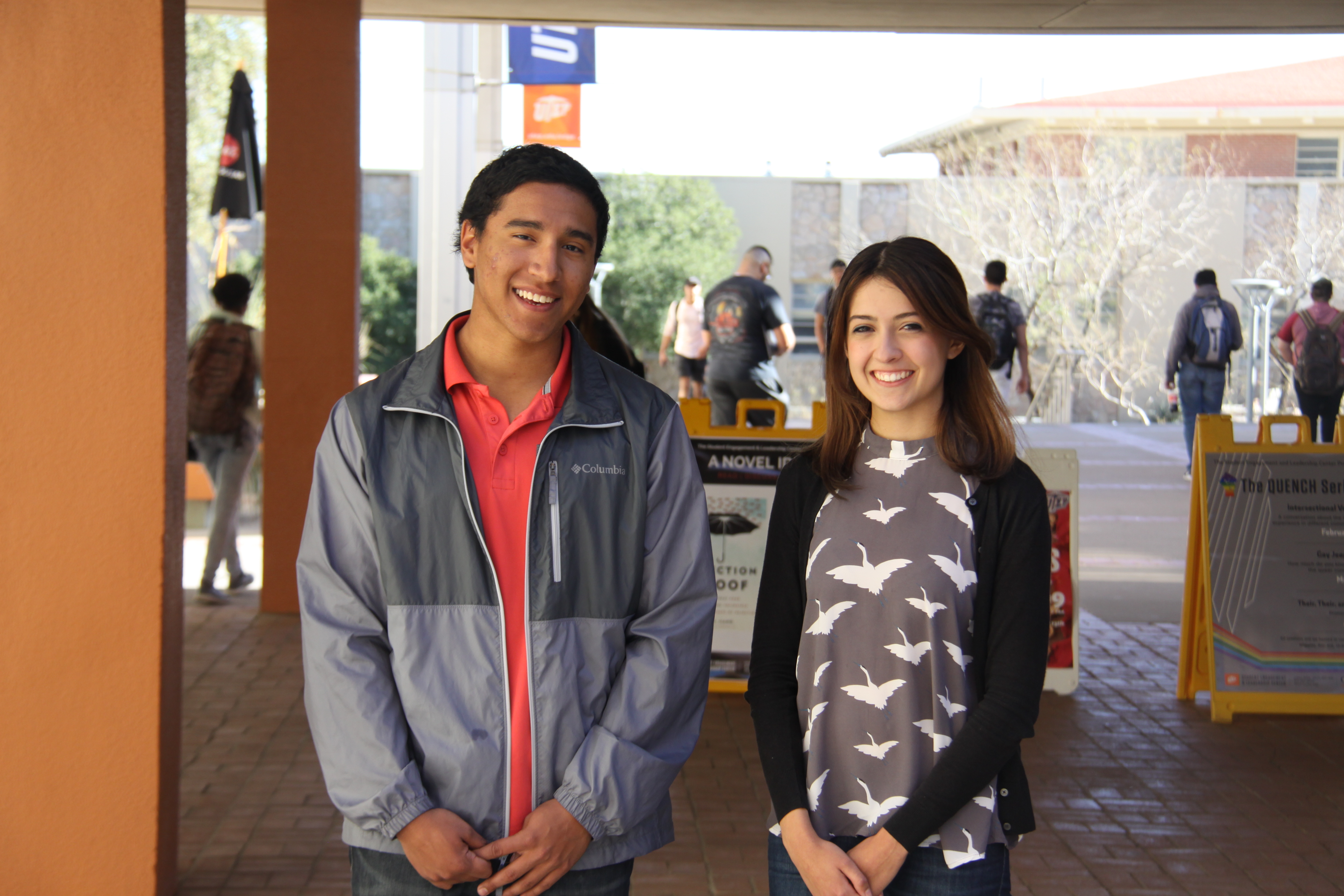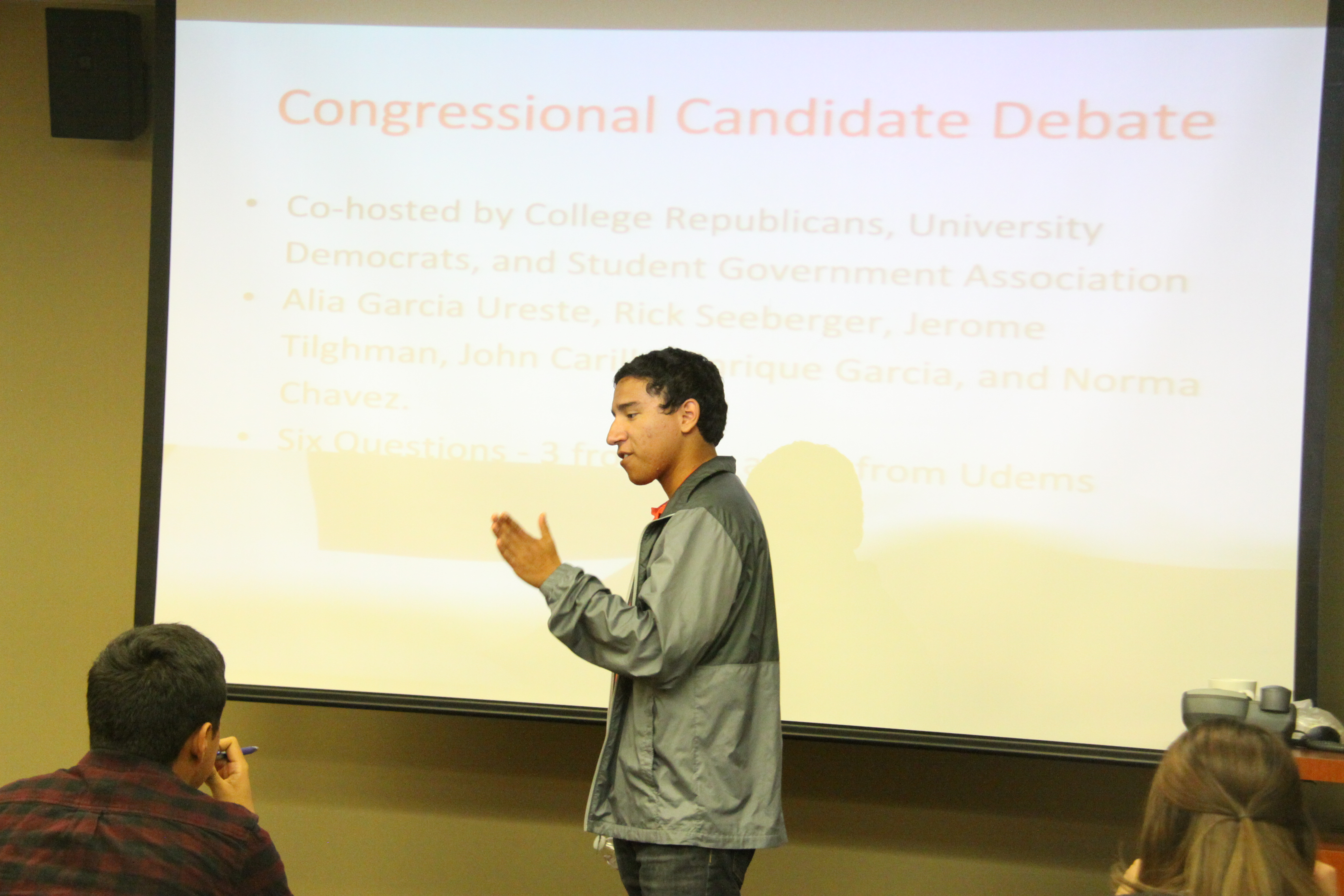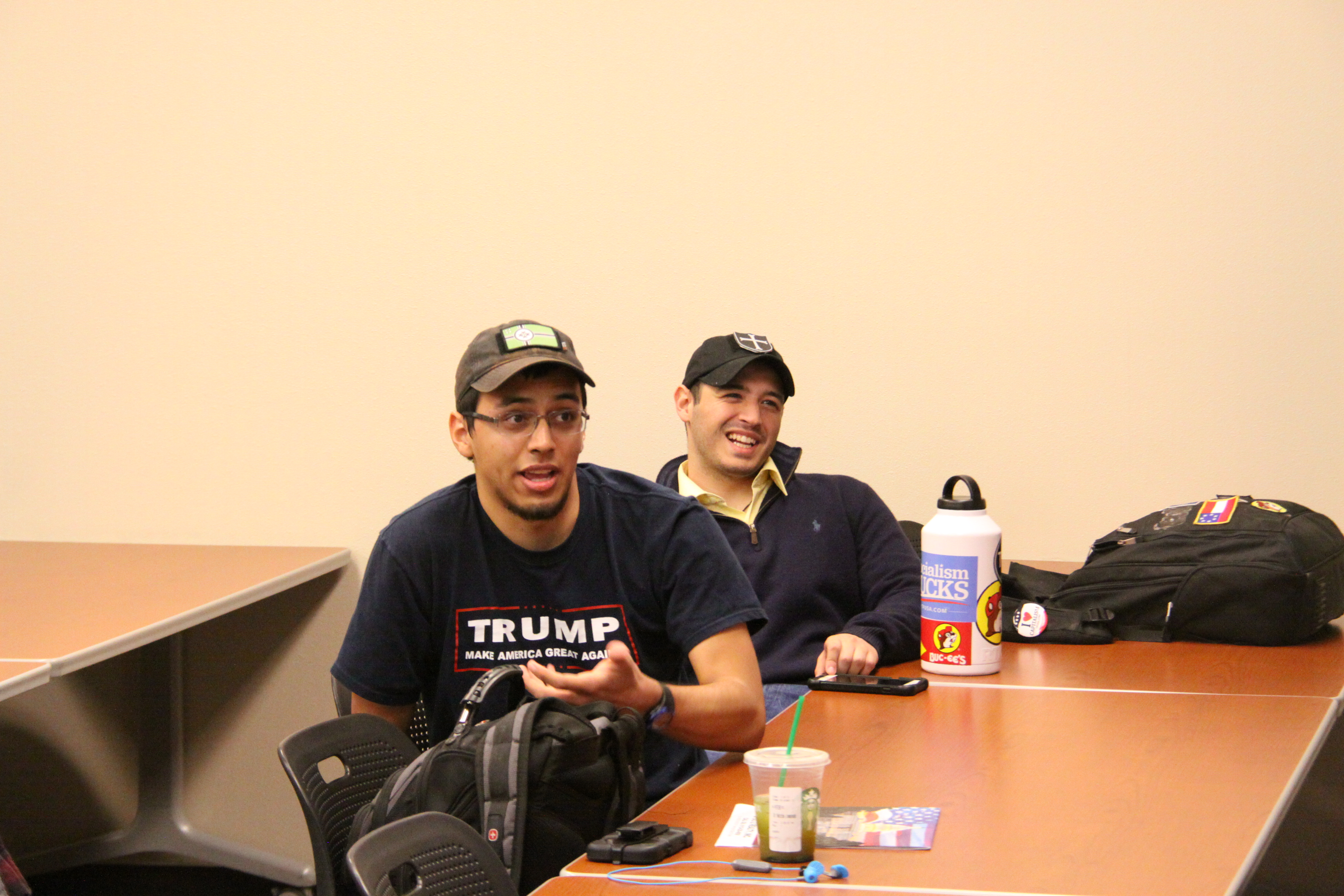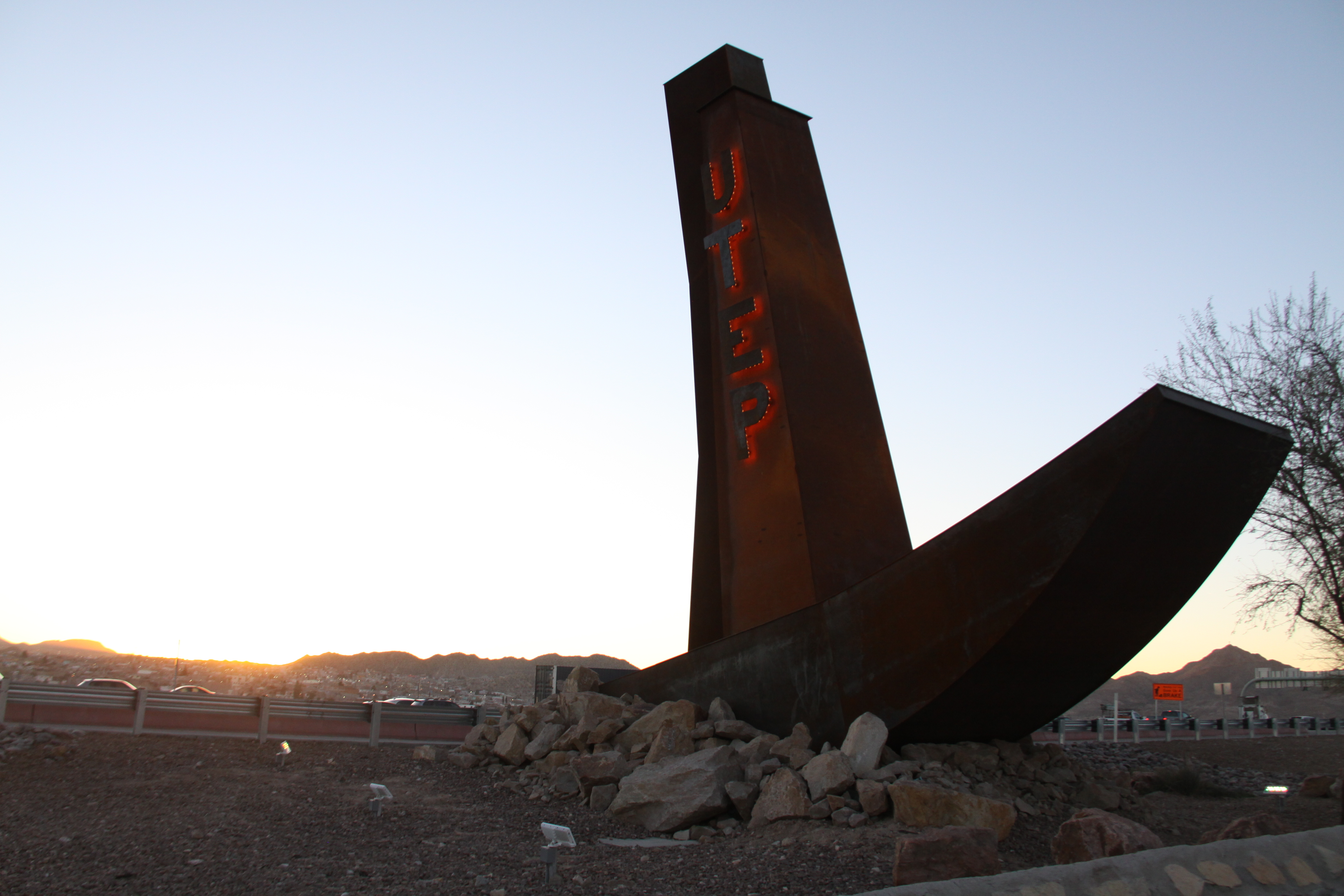
Oscar Sancez (left) and Ana Zepeda are both members of the College Republicans at the University of Texas at El Paso. They both oppose DACA. (Kirk Carapezza/WGBH News)
Federal courts have extended the Deferred Action for Childhood Arrivals program, though nobody knows for exactly how long. President Trump had originally set a deadline for next week.
While polls show nearly all Hispanics in this country support DACA, in Texas one in four want to end it.
WGBH’s On Campus Radio caught up with young Hispanic Republicans at the University of Texas at El Paso, which enrolls about 200 DACA students.
Inside the Student Union Center at the UTEP, the College Republicans were holding their monthly meeting, brainstorming questions for a debate for congressional candidates they’re hosting on campus.
“If not a wall, how do you suggest we secure our border?” one student shouted.
Leading the discussion was junior Oscar Sanchez, president of the College Republicans.

Oscar Sanchez leads a meeting of the College Republicans at UTEP. (Esteban Bustillos/WGBH News)
The 20-year-old conservative thinks giving DACA recipients legal status undermines immigration law.
"It's not fair for other immigrants like my parents, for example," he said.
His parents emigrated from Mexico legally more than thirty years ago, hoping to get ahead.
"My mom being from right here in Juarez, right across the border and my dad from Chihuahua, which is like four or five hours from here,” Sanchez said. “He works in manufacturing. He just worked his way up and ended up getting good salaries as the older he got. He lives the American Dream."
While an ABC-Washington Post poll showed more than 90 percent of Hispanics in the U.S. supportextending the American Dream to DACA recipients, a statewide poll in Texas found 24 percent of Hispanics want to end it.
That includes UTEP sophomore Ana Zepeda, 19. A Catholic, she voted for Trump.
"That was mostly a faith-based decision,” Zepeda said.
Zepeda doesn't like the idea of a pathway to citizenship for the so-called Dreamers or the ability of legal immigrants to bring extended family members to the country.
"Citizenship is pushing it, but without chain migration I think that would be a fair compromise,” she said.
At her private high school in El Paso, Zepeda knew at least one undocumented classmate. She said she didn’t view her as unfair competition. And she doesn’t think the estimated 9-10,000 Dreamers in El Paso County are limiting her opportunity.
“I see that most of them are taking jobs that we have a shortage of people who would take them,” she said.
Peter Leyva, 23 and in his final year at UTEP, disagreed. He wore a "Make America Great Again" t-shirt to the College Republican meeting.

Peter Leyva opposes the DACA program. (Kirk Carapezza/WGBH News)
"As someone whose family waited in line to get citizenship, get naturalized, all the rest of it, I have always been opposed to letting illegal immigrants have a free pass,” Leyva said.
Still, Leyva doesn't blame any of his classmates who entered the U.S. illegally as children.
"I blame the parents,” he said. “Obviously, the parents brought the kids here."
He also objects to private donors giving scholarships to DACA students.
"You don't see those same things for poor working-class white people,” Leyva said.
While DACA students can receive financial aid from college and state governments, they are not eligible for Pell grants for low-income students.
Six years ago, after President Obama established DACA, UTEP administrators encouraged undocumented students to come out of the shadows, offering some of them scholarships.
Now, the university has been facing harsh criticism for helping its DACA students.
Dean of Students Catie McCorry-Andalis admits this era has challenged educators. She says administrators are expected to support all students and build bridges between them.

UTEP's campus sits right next to the U.S.-Mexico border. (Kirk Carapezza/WGBH News)
"We have some of our students who are Dreamers, DACA recipients, who have decided to come out and be very public about their status. There are several others who absolutely have not,” McCorry-Andalis said. “So I have shared with students to tell them, 'They are among you.' And that is ultimately our job as educators to help them understand what it means to be a global citizen."
WGBH News' Esteban Bustillos contributed to this report.
Listen to part one of our series "DACA In A Red State" here.
Web Extra: College Republicans at UTEP talk about their opposition to DACA.










